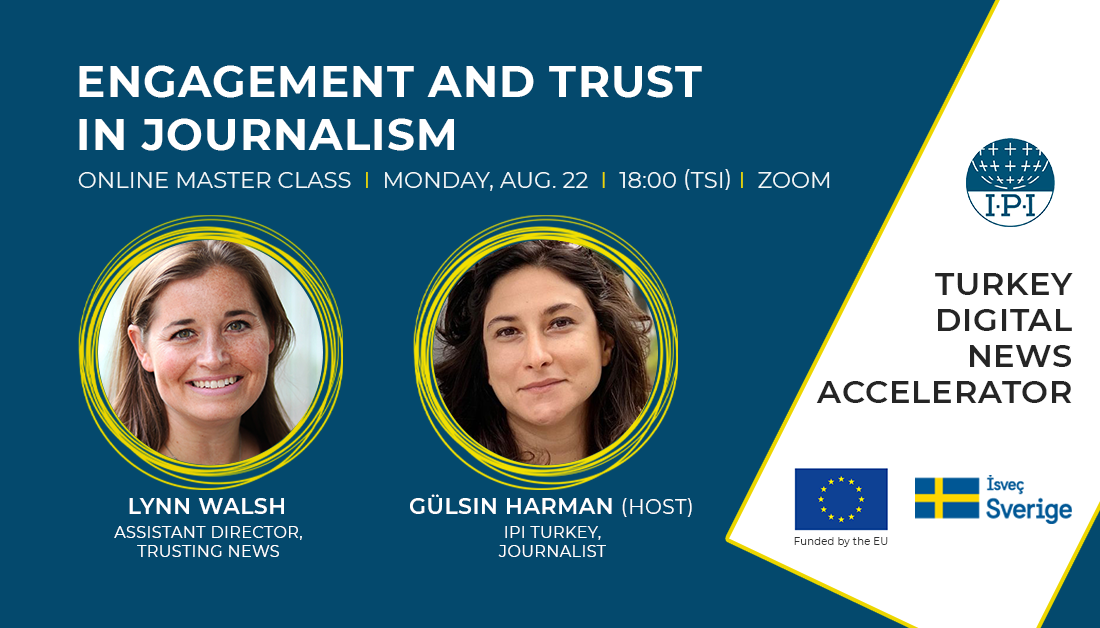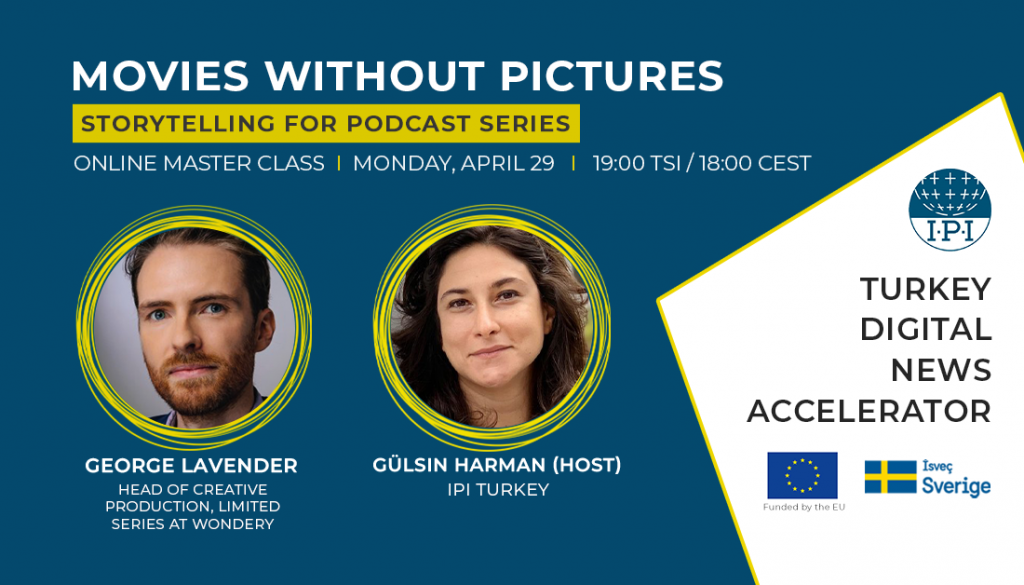On August 22, International Press Institute (IPI) in collaboration with its Turkey National Committee organized the second episode of the Master Class series “Turkey Digital News Accelerator 2022” which brings international experts via online and hybrid workshops on digital transition and innovations to journalists in Turkey.
Gülsin Harman, a member of IPI Turkey National Committee and an experienced journalist working for international news outlets, hosted Lynn Walsh of Trusting News who presented examples of how to engage with users, listen to them, and act on their feedback in the second Master Class in the series under the title of “Engagement and Trust in Journalism”.
Walsh began by setting the stage with data and research about where trust in journalism stands in the world, highlighting that trust in news rebounded globally. However, in spite of this positive general trend, problems with trust persist on the local scale. Walsh said that while there are problems on both sides of the broken relationship between journalists and their audience, journalists need to own the solutions. She added that the job of journalists is to explain why their work is trustworthy.
Walsh told the audience that journalists can earn the trust of their readers primarily by engaging with them. Engagement with the audience entails sharing one’s intentions with the readers and receiving their feedback. However, it is not always that journalists can easily hear back from their audience. In such cases, the main question a journalist should ask is “what are the obstacles in my relationship with my community?”
Walsh continued by giving examples of concrete ways of collecting insights about an audience’s perception of a newsroom and systematically identifying trends. Among these are asking the newsroom’s staff to note down what they hear from their readers, gathering this feedback and looking for trends. Another way is to directly ask for people’s perceptions, frustrations, and suggestions via online surveys. One important element of receiving feedback from the audience is being responsive to the feedback and sustaining the dialogue.
Walsh said that comments from the readers most often reveal their assumptions about a given journalistic work. She emphasized that these assumptions are key to revealing information gaps represented by questions such as “how did the journalists work to be fair?” and “how was the journalism funded?”. Having identified the information gaps, it is critical for journalists to address these gaps by talking to the audience using humility, diplomacy, and the right tone.
“We know that by being transparent about your intentions you can build trust with your community”, said Walsh before bringing the Master Class to an end.
There is more to come!
This special master class is part of “Turkey Digital News Accelerator 2022”, a series of online and hybrid workshops on digital transition and innovations for journalists in Turkey which will continue throughout the year with different topics and international experts.
Please sign up for our newsletter to get information about upcoming events!



